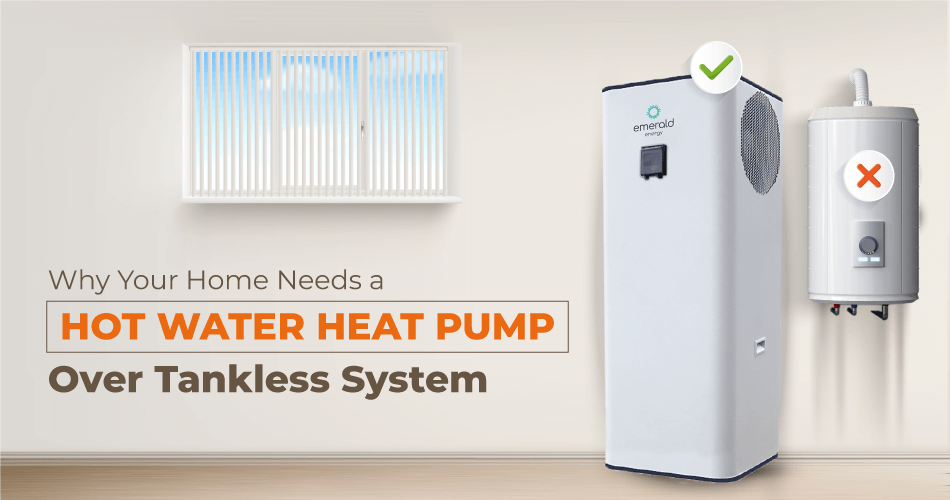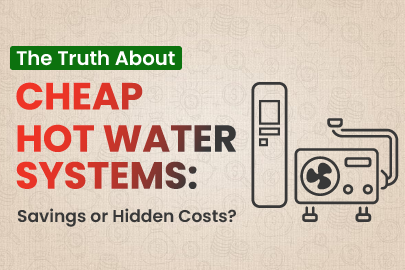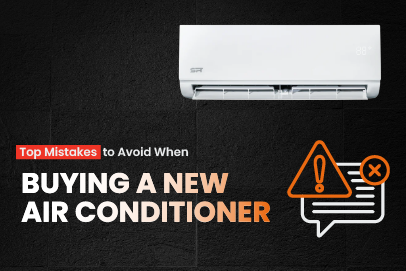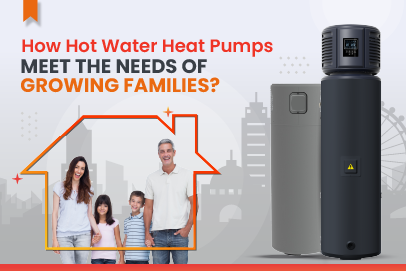When deciding on the best way to supply hot water in your home, evaluating all available options is critical. This includes considering both tankless water heaters and hot water heat pumps.
Tankless systems, also known as water heater without tanks or tankless instant hot water heaters, offer certain benefits, such as on-demand hot water and potential space savings. However, hot water heat pumps present compelling advantages that make them a superior choice for many homeowners.
These systems are not only highly efficient but also environmentally friendly, leveraging ambient heat to provide hot water at a lower operational cost and with less environmental impact. This makes hot water heat pumps an increasingly popular option among those looking to enhance home energy efficiency and reduce utility bills.
Understanding Water heater without tanks
Tankless hot water heater, also known as tankless instant water heaters, provide hot water on demand without the need for a storage tank.
They heat water directly as it flows through the device, which can lead to energy savings since there's no need to maintain a tank of hot water. However, despite these benefits, there are notable downsides to consider.
Cons of Water heater without tanks
One major drawback is the life span of tankless instant water heaters, which, while generally long, can be significantly affected by hard water conditions and high usage rates.
Additionally, they might not provide a consistent enough flow rate for simultaneous use across multiple outlets. High initial installation costs and the potential need for larger gas lines or additional circuitry can also be prohibitive.
Lifespan of water heater without tanks
The life span of tankless water heater is a significant consideration when weighing its benefits. Generally, these units are expected to last about 20 years, which is longer than traditional tank-based heaters.
This extended lifespan is attributed to their lack of a storage tank, which reduces the risk of corrosion—a common issue in tank systems.
However, the longevity of tankless instantaneous water heater can be influenced by factors such as water quality, usage patterns, and regular maintenance.
Hard water, for example, can lead to mineral buildup inside the unit, potentially necessitating more frequent maintenance or even premature replacement if not addressed. Proper installation and routine care are crucial to maximize the life span of tankless water heater.
Stages of Hot Water Heat Pumps
In contrast, hot water heat pumps use heat from the air to heat water, which is a highly efficient process.
These systems can be more energy-efficient than tankless hot water heaters, especially in climates where the ambient temperature is moderate to warm.
They also have the capacity to store heated water, ensuring a reliable supply even during high demand, which tankless systems can struggle to match.

Conclusion
In conclusion, while water heater without tanks have their place in the market, hot water heat pumps offer a range of benefits that can be more suited to the needs of many homes and businesses.
They provide a more reliable, efficient, and environmentally friendly solution for heating water, making them an ideal choice for those looking to upgrade their hot water system.
FAQs
While water heater without tanks offer the advantage of compact size and potentially lower operating costs, they may struggle to supply sufficient hot water simultaneously to multiple points of use and can be expensive to install, particularly if home modifications are required.
The primary downside includes inconsistent water temperature when multiple outlets are used simultaneously, potential overload of the unit during peak times, and higher upfront costs compared to conventional systems.
Hot water heat pumps generally have lower operating costs in the long term compared to water heater without tanks, particularly in milder climates where they operate most efficiently.
For larger households with high simultaneous hot water needs, hot water heat pumps are often more suitable because they can provide a steady and scalable supply of hot water, unlike tankless systems, which may falter under heavy simultaneous usage.
Hot water heat pumps are generally considered more environmentally friendly compared to tankless water heaters since they use ambient heat and less electricity, contributing less to fossil fuel consumption and carbon emissions.







